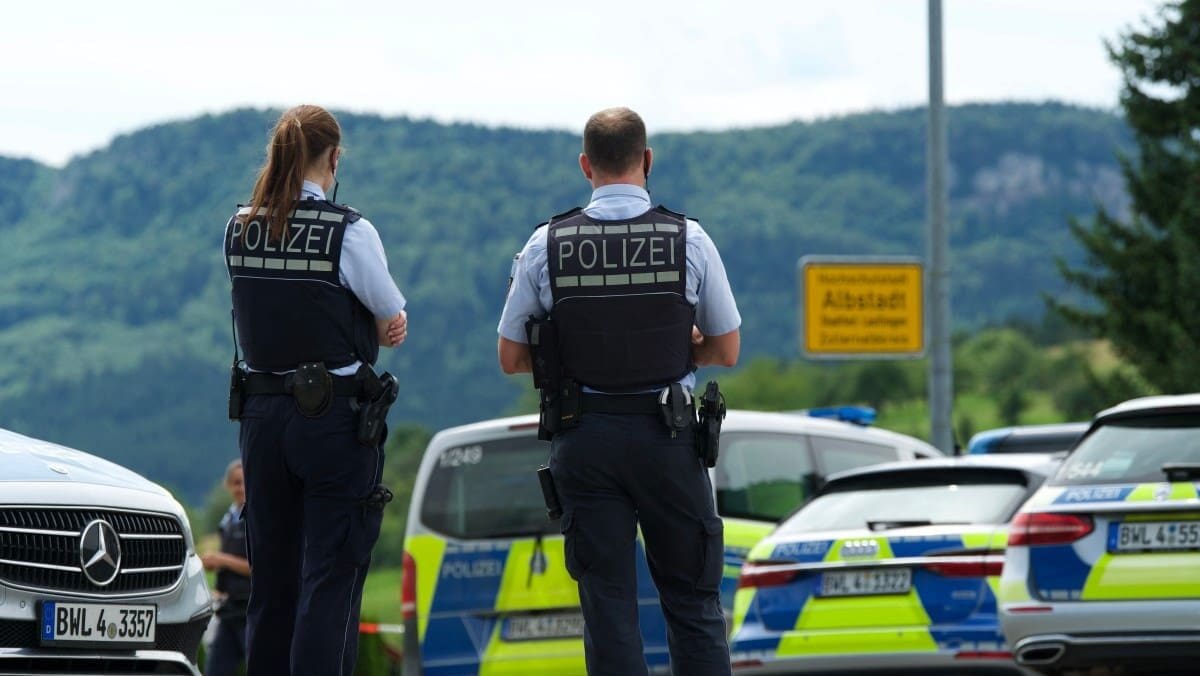
Photo: Silas Stein / AFP
People who voluntarily hand in banned and dangerous knives should be rewarded with a year-long Netflix subscription, the head of one of the largest German police unions has said.
The most popular pocket knife costs €17 while an annual Netflix subscription amounts to €170, making the exchange worthwhile for anyone willing to dispose of their knives. “For this measure to be effective, the federal government must create serious incentives for sellers,” Jochen Kopelke, head of the Gewerkschaft der Polizei (GdP), added.
Knife crime has been soaring in Germany: according to police statistics, close to 13,844 knife-related attacks were committed last year, a significant increase compared to the 10,131 cases recorded a year earlier. The Charité hospital in Berlin said this week that the number of patients treated for stab wounds this year has already reached 50 to 55—a number they usually tend to in a whole year. “This is a threatening development for society,” Ulrich Stöckle, managing director of the hospital’s Centre for Musculoskeletal Surgery, said.
Most of the perpetrators of violence in Berlin “are young, male and have a non-German background. This also applies to knife violence,” Barbara Slowik, the police commissioner of Berlin recently said in an interview.
Knife crime has been especially rife among the migrant communities in Germany, with Syrian and Afghan perpetrators making the headlines in recent months. One of the most shocking attacks was committed by an Afghan failed asylum seeker in May in Mannheim: the 25-year-old man, who had been living in the country illegally for nine years, murdered a policeman.
Most recently, a Syrian migrant seriously injured a four-year-old girl in a supermarket in the southern German city of Wangen im Allgäu, and a 17-year-old Syrian was arrested for stabbing a family of five in Stuttgart. The latter case is particularly disturbing, as the attacker had reportedly committed 34 criminal acts in 31 months—but the police kept letting him go.
Support for resuming deportations to both Syria and Afghanistan has increased, but the government is unwilling to deport dangerous criminals because Germany has declared both countries unsafe.
Readers of the German daily Bild, the country’s highest-circulation newspaper, vented their anger at the government for doing nothing. “Deport everyone who is dangerous. Enough is enough,” wrote one of them. “These types of criminals are ridiculing our country,” wrote another. A third reader compared the situation to recent violent protests in Britain, saying: “Politicians are horrified, but no one is taking action. We can already see in England where this type of behaviour leads to.”
In response to the high-profile acts of political violence, politicians from both the Left and Right have called for stricter controls on the possession of knives in public. Jochen Kopelke welcomed proposals for a ban on carrying knives, but he emphasised that increased police controls would be required, as well as additional personnel and improved equipment for the police.
Germany already has strict regulations on carrying knives in public, with blades over 12 cm banned except in certain circumstances.
